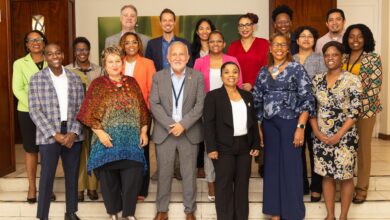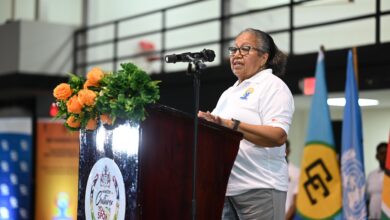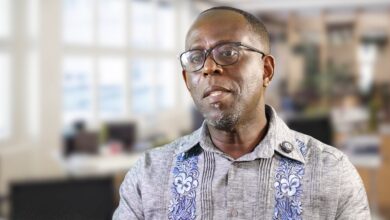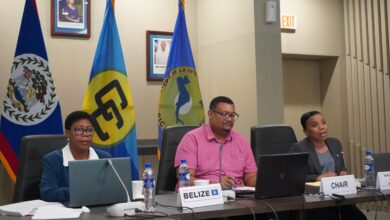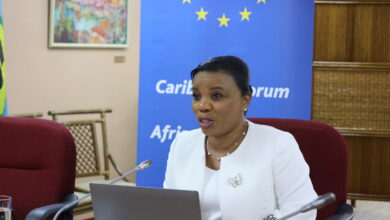Bridgetown, Barbados, 7 June 2021 (PAHO/WHO) – During a recently held European Union (EU), Pan American Health Organization (PAHO), [1]CARIFORUM Health Co-Benefits webinar, representatives from 16 CARIFORUM countries, South America, North America and Europe, received an introduction to four WHO/PAHO tools to support the generation of evidence around the immediate health benefits from climate mitigation.
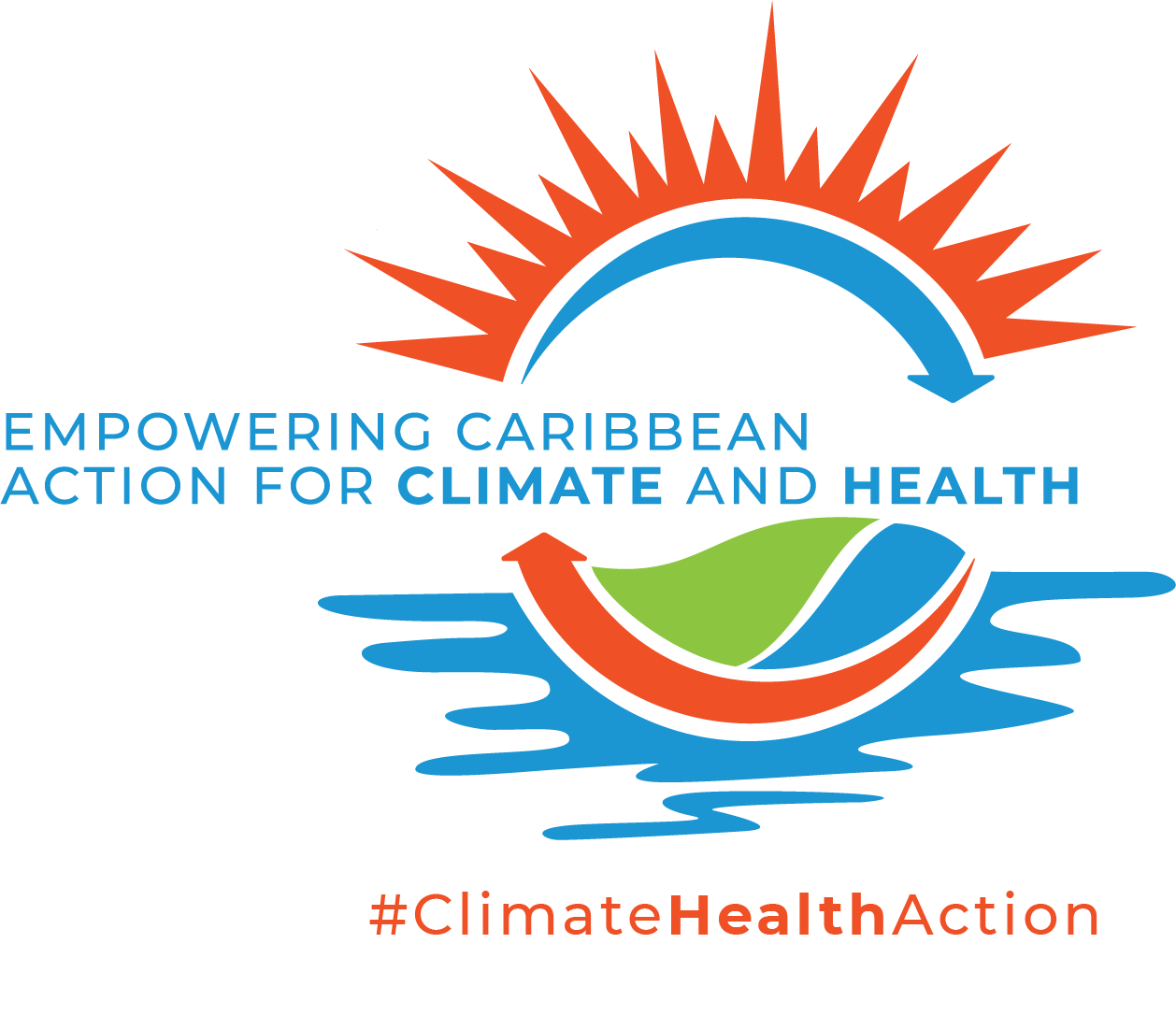
The more common mitigation strategies applied to reduce greenhouse gas emissions include shifting to renewable energy, reducing energy use, adding healthy spaces to the built environment and improving transportation options. These actions may significantly improve health outcomes by reducing air pollution and improving physical and mental health. The tools presented for piloting in the Caribbean can determine the potential health impacts from improvements in air quality (AirQ+ and CARBON-H), of active transportation on health and carbon emissions (HEAT for Walking and Cycling) and from green space (Green UR).
Most participants had no prior training in the implementation of these tools. The overarching objective of the webinar was to present the EU/CARIFORUM project as means to support countries in the use of these tools to influence decision-making towards creating a healthier Caribbean. Panel discussions were held to get a better indication of the health co-benefit related needs, feasibility for piloting, availability of data inputs at the local/national level to support the tools and capacity to support tools.
PAHO/WHO Subregional Programme Director, Caribbean, Dean Chambliss, described the training as supportive of the Caribbean Plan on Health and Climate Change, approved by ministers of health and the environment in 2018. That Plan focussed on the evidence for planning, decision-making and policy assessment as well as the promotion of Health Impact Assessment (HIA) tools.
“PAHO with other partners in the EU/CARIFORUM project are moving forward this important work to ensure that Member States and their peoples have a sustainable and healthy future. I hope that over the short-term, countries will be able to adapt the tools presented today to the Caribbean context, so that they may prove effective in determining the health benefits associated with improvements in air quality, adjustments to transportation systems, and in the creation of healthy spaces. Over the longer term, my hope is that the findings and recommendations generated from piloting these tools will inform and influence public policies and programs,” Mr Chambliss stated.
Health co-benefits include greater consideration to policies that achieve both environmental and health goals, contribute to improvements in health both locally and globally, provide policymakers with relevant, credible and useful information on potential health impacts and provide avenues for health to engage with other sectors. Health co-benefit assessments may also provide the potential for large gains to national economies and contribute to proposals for climate and health financing. Programme Manager, Sustainable Development at the CARICOM Secretariat, Amrikha Singh described the webinar as very timely.
“The region has been focusing on building back better and building back greener, to advance our economic recovery for the region in the aftermath of this COVID-19 pandemic that we are all facing… This region has always lead by example and going into COP26 as an important part of the grouping of small island and low line coastal development states, we will be calling on our international partners to meet their targets and their levels of stated ambition to bring us all within the 1.5 degree targets. So, therefore, the issue of implementation is critical for us and training and exposure to these tools and techniques are important for our region as we seek to implement our NDCs and to realize meaningful change on the ground,” Ms Singh said.
Project manager and Climate Change and Health Advisor at PAHO, Dr Jonathan Drewry, outlined the plans over the remaining 4 years of the project as collecting information from CARIFORUM countries on interest in application, training and capacity needs, selection of initial countries to pilot the tools, and scale up based upon findings of initial demonstration sites.
END
CONTACT:
PAHO/WHO Subregional Office (Barbados)
Lisa Bayley + 246 233 8534 bayleylis@paho.org
The Pan American Health Organization (PAHO) works with the countries of the Americas to improve the health and quality of life of its population. Founded in 1902, it is the world’s oldest international public health agency. It serves as the Regional Office of WHO for the Americas and is the specialized health agency of the Inter-American system.
The PAHO Subregional Program is responsible for providing subregional technical cooperation and to strengthen PAHO’s engagement with the Caribbean Subregional integration mechanisms, the Caribbean Community (CARICOM) and its various bodies and organs; and to build synergistic partnerships with the subregional institutions such as the Caribbean Public Health Agency (CARPHA) and the University of the West Indies (UWI), among others. PAHO’s subregional technical cooperation specifically focuses on public health issues which would benefit from economies of scale and for which agreement on proposed collective responses and actions would produce a far greater impact rather than individual country responses. The Subregional Program also plays a role in coordinating among the different PAHO country offices.
[1] The Caribbean Forum (CARIFORUM) is a subgroup of the Organisation of African, Caribbean and Pacific States and serves as a base for economic dialogue with the European Union. It was established in 1992. Its membership comprises the 15 Caribbean Community states, along with the Dominican Republic. https://ec.europa.eu/trade/policy/countries-and-regions/regions/caribbean/


